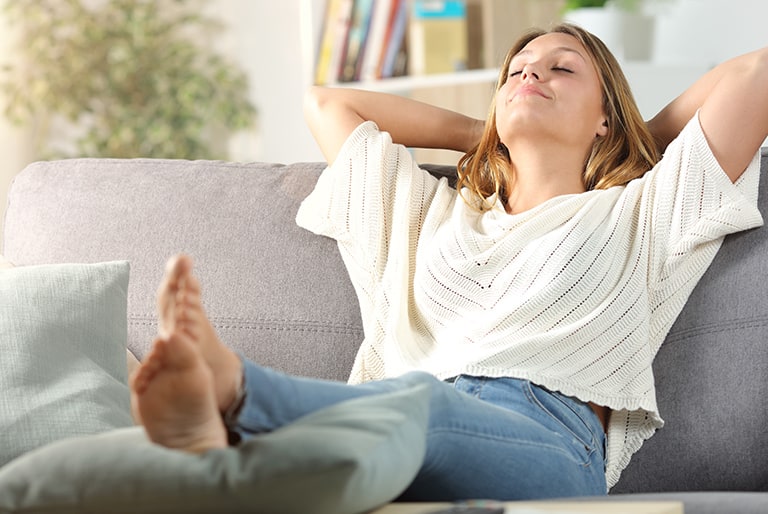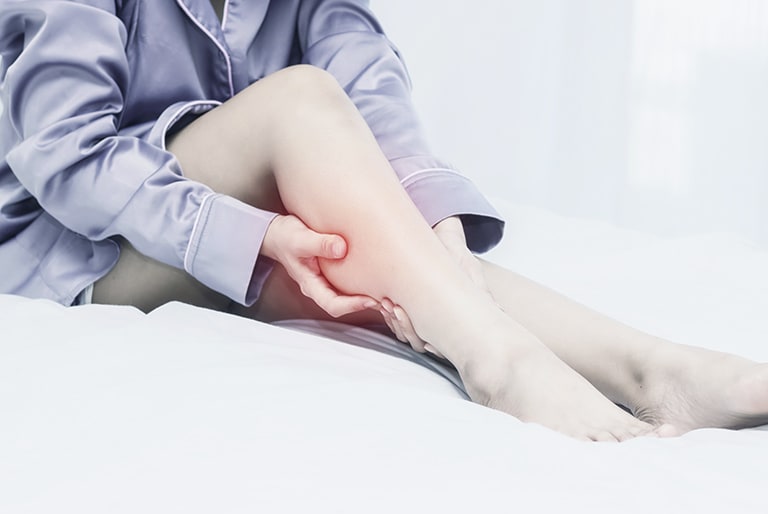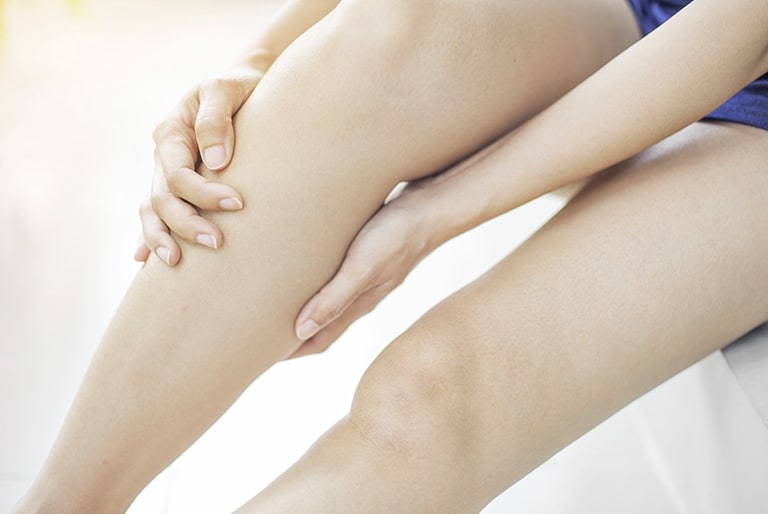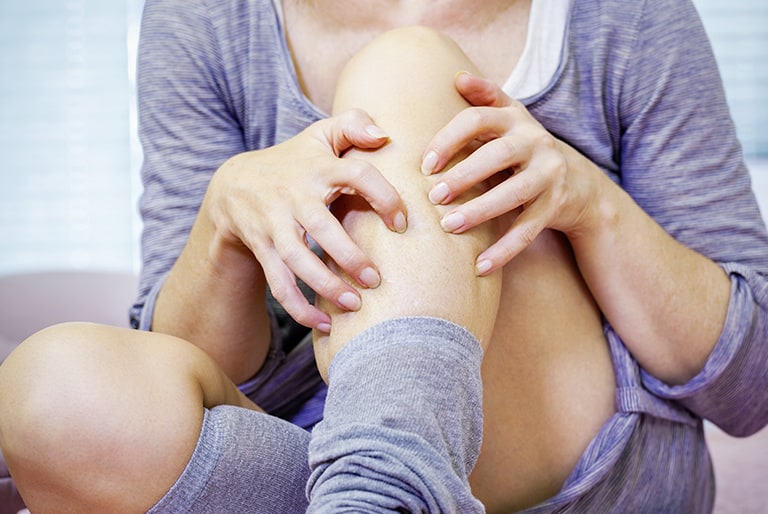Heavy legs
Many people know the feeling when their legs feel heavy and tired after a long day. Summer heat and prolonged standing or sitting are the causes of a build-up of blood in your legs. But you can counteract the heaviness with a few simple tricks!

What is the cause of heavy legs?
What do heavy legs feel like?
Anyone who suffers from heavy legs has the feeling that weights or magnets were pulling their legs downwards into the ground. Walking is difficult, even raising your leg causes pain. There are often other accompanying symptoms: your feet and legs visibly swell up and can even be painful. Many people know the problem after a long day at work. Usually, there is a need to simply put your feet up in order to dissolve the backlog of blood and water in your tissues.
What can I do against heavy legs?
There are a few tips to relieve the symptoms if your legs feel heavy. They can also be done as a preventive measure, to keep your legs light and lively:
- Avoid standing and sitting: movement helps against heavy legs. So avoid prolonged standing and sitting as much as possible. Move your legs now and again, walk a few steps, walk on the spot from one leg to the other – then your blood will be better pumped upwards.
- Put your feet up: quite often, after a long day on your feet, the only thing that helps is to put them up. That helps the blood to flow back out of your legs and the heavy feeling diminishes. A quick remedy is to lie down and to put your feet up against the wall. You can also put your feet in a slightly elevated position on a chair.
- Cold foot bath: on a hot summer’s day, a cold foot bath is not only a welcome refreshment, but also a real support for the function of your veins. Because the cold makes your blood vessels contract and they can then better press your blood upwards. Contrast showers are generally a good prevention against venous diseases.
- Cooling gel: anyone who travels a lot during summer can rub their legs occasionally with a cooling gel. The freshness boost enlivens in a flash.
- Sport: regular sport and long walks activate the muscle pump. Through the contraction, your calf muscles pump blood upwards towards your heart. Just using the stairs instead of the lift is good training for effective veins.
- Vein gymnastics: your veins are also happy with a spot of sport. So plan a few minutes of vein gymnastics several times into your day. It can be done wonderfully when standing or seated. Stretch and contract your feet, run on the spot or paddle with your legs.
- Drink: thick blood flows more slowly through your veins. So drink enough liquids spread throughout the day so your blood can circulate better through your body and does not accumulate in your legs.
- Flat shoes: high heels are questionable not only from an orthopaedic perspective; they also encourage a build-up of blood in your legs. Flat shoes, on the other hand, support the muscle pump and thereby the onward flow of your blood.
- Avoid excess weight: excess weight is a massive problem for the health of your veins. Because: the more you weigh, the slower your blood flows. So stick to a healthy lifestyle with a balanced diet and lots of exercise.
- Support circulation: if you frequently suffer from heavy legs, you probably already have venous insufficiency. In such a case, you can support the fluidity of your blood and the walls of your vessels with medicines. A suitable example is the active ingredient Troxerutin, extracted from a substance from the Japanese Pagoda Tree, which is contained in Veno SL® 300.


